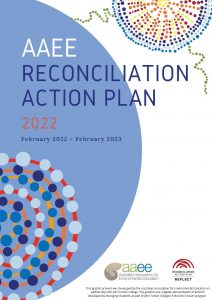Reconciliation Action Plan
Ngaparrtji Ngaparrtji Two-way Science
Two-way Science supports schools to build partnerships with local Aboriginal communities to develop integrated culturally responsive learning programs that connect the Western Australian Curriculum Science to Aboriginal knowledges. Two-way Science provides an opportunity for all students to learn about science from the world’s oldest continuing cultures.
The AAEEWA Chapter has created an early years resource for educators working with children from 0 – 8 yrs to showcase the Noongar Culture of weaving, tracks and glue making. The three video’s are accompanied by a Teachers Guide.
We want to acknowledge Alton and Rickeeta Walley for their cultural knowledge sharing in the videos and Rita Lusted from Ngaparrtji Ngaparrtji for collaboration for the Teachers Guide with Dr Elaine Lewis & Dr Jennifer Pearson. Thank you Melinda Snowball from SERCUL, for the styling of the Teachers Guide.
Three Video’s links are provided below and the Teachers Guide is available here to download.
Weave making
Glue making
Track making
Here is a link to a list of Aboriginal Presenters in the Perth Region and Beyond
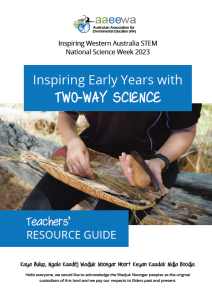
WASEF 2023 Acknowledgement of Country – Dr Elaine Lewis
Wandjoo, Welcome
AAEE members across this nation have been participating in many practical engagements with Aboriginal and Torres Strait peoples over many years. The WA Chapter has engaged closely and deeply with Noongar Elders, educators and artists, working together with them to contribute to Reconciliation.
The recent Referendum result has challenged us to intensify this commitment. At an AAEE Learning Circle last week about Professor Anne Poelina’s podcast Holding the Fire: Indigenous Voices on the Great Unraveling, we were invited to reflect on where we are at in this space.
During this Learning Circle we shared the 4 Gs: Gratitude, Grief, Growth & Going forward.
In the context of the recent Referendum result I would like to express my:
Gratitude 1st, for the ancient wisdom that Aboriginal and Torres Strait Islander peoples share with us;
2nd Grief, relating to the devastating, rejected, disempowered feeling I have felt plus the knowledge that some of my Noongar friends are being impacted by mental health concerns, including Aboriginal people invited to attend this Forum but felt unable to because of what the referendum result said to them;
3rd Growth, because I have learnt so much and continue to learn from Noongar Elders, educators, artists and friends; and finally
4th Going forward, how can I, we, take action to continue to stand with our Aboriginal & Torres Strait Islander peoples. One way discussed in the AAEE Learning Circle was to develop Communities of Hope. In these communities we take action with Noongar people – to start we need to be silent, then listen and share what the referendum result means to each of us and what we are going to do about it.
What we in AAEE are doing following the Referendum, is engaging in learning circles to discover where we will progress our “going forward”. Professor Stan Grant in the 2023 ANU J G Crawford Oratory on the 30th of last month (it is well worth listening to on YouTube); Stan asks us for ”space and kindness to find our way through” and reflected that “there is a better way – knowing when to speak and when not to speak”. We saw this ancient wisdom in action when there was a week of Aboriginal silence in response to the Referendum result.
So, with the 4Gs in mind I say a heartfelt Acknowledgement, which was shared with us by Leonard Thorn, a Noongar Elder who has worked closely with AAEE WA over many years:
Kaya Bulup, Hello everyone
Ngala Kaaditj Wadjuk Noongar Moort Keyan Kaadak Nidja Boodja.
I would like to acknowledge the Wadjuk Noongar peoples as the original custodians of this land and we pay our respects to Elders past and present.
Here is the link to hear Dr Elaine Lewis present the Acknowledgement

National NAIDOC Week 7 - 14th July 2024

THE NATIONAL RECONCILIATION WEEK 2024 "NOW MORE THAN EVER' 27 MAY TO 3 JUNE 2024
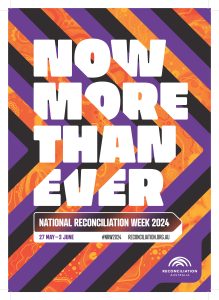
AAEEWA CHAPTER WEAVING WORKSHOPS
Reclaim the Void was born from Ngalia elders in Leonora, Western Australia, expressing their pain and grief at ‘those gaping mining holes left all over our country’. The idea was conceived to symbolically ‘seal’ one of the holes with an artwork expressing the story of country. Join us to learn how to create woven rag rugs. The Reclaim the Void project is led by Vivenne Robertson and links can be found at HTTPS://WWW.RECLAIMTHEVOID.COM.AU/ for the full story.
Concept Image (Vivienne Robertson) based on original painting Tui by Dolly Walker.
The WA Chapter has hosted workshops for this project in Perth and Esperance during 2022 – 23. This project has reached the final stages of creation at the WA Museum Boola Bardip June of 2024. The large rug created will be taken to Leonora and laid on sacred ground.
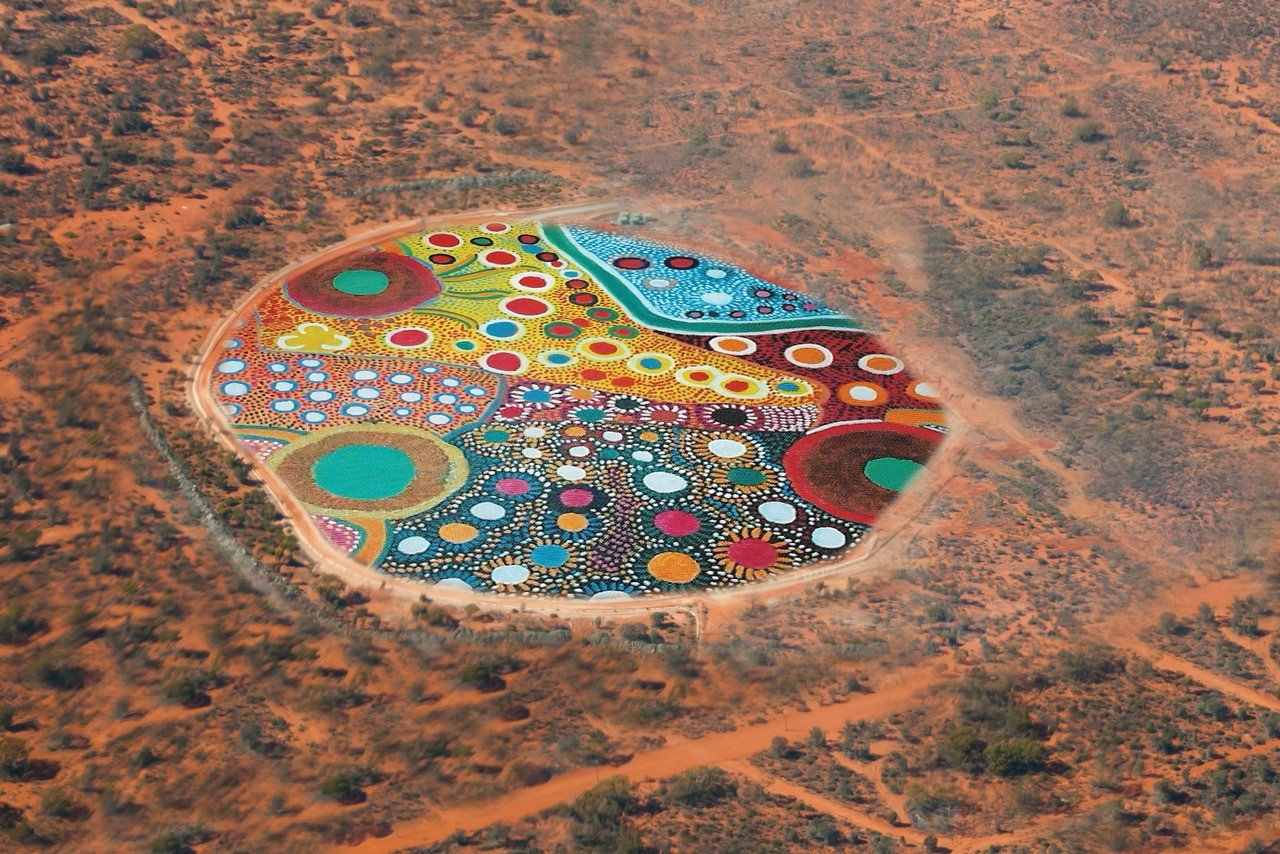
One World Centre - Reconciliation Labyrinth Walk 2022
Please join us at OWC on Monday 27 May, 9.00-10.30am, as we join the NRW Virtual Breakfast streamed right across WA from Boorloo Perth. As per the NRW invitation “the streaming will feature a dynamic program from Boorloo Perth, featuring regional voices, engaging keynote speakers, and truth-telling”.
Join us also for a late breakfast and chat.
RSVP: coordinator@oneworldcentre.org.au
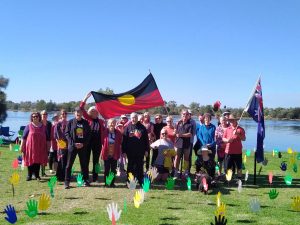
Reconciliation Action plan
AAEEWA has long been committed to Reconciliation with Aboriginal and Torres Strait Islander peoples. Our Acknowledgement of Country may be found on the Home page.
In 2015 AAEEWA formed a RAP Committee to develop our RAP. During the following years following wide consultation within the organisation and with external stakeholders including Aboriginal people.
This was offered to the National AAEE Executive in 2018 for consideration as a model for a National AAEE RAP. Consultation with all State & Territory Chapters has resulted in an Endorsed Reflect National AAEE RAP.
AAEE Reflect Reconciliation Action Plan Feb 22-23
